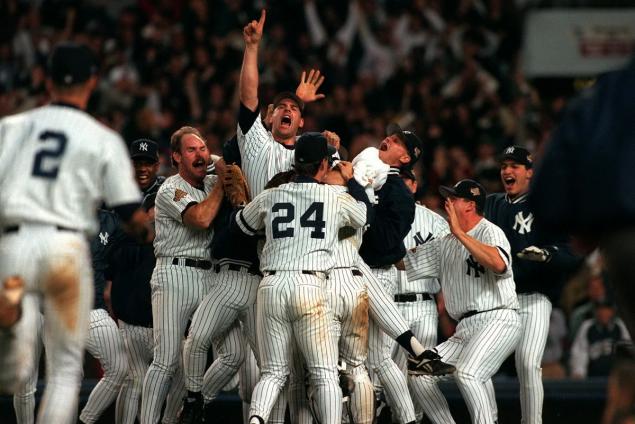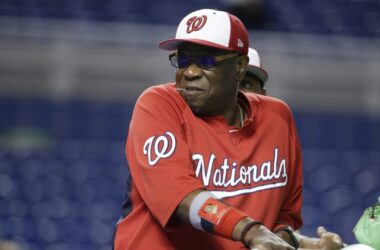In 1996, the New York Yankees barely resembled the blockbuster, overpowering teams of the half century from 1920 to 1970. The team was a squad of role-players and promising rookies—a puzzling but seminal group of players that brimmed with tenacity and cohesion for a franchise more known for pomp, fame, and cockiness. In an 18-year purgatory since their last World Series, the Yankees consistently disappointed. However, in 1996, something unprecedented emerged—a team without any real flaws. Those strangely underdog Yankees made it to the World Series and defeated the defending Atlanta Braves, who had been to four world series that decade. From humble beginnings, this Yankees’ victory was the beginning of baseball's Galactic Empire.
Burdened by a history of greatness–from Babe Ruth to Mickey Mantle to Thurman Munson–these 1996 Yankees lacked star appeal after face-of-the-franchise first baseman Don Mattingly retired the previous season. Their best players were untested rookies and good-not-great veterans. Journeyman second baseman Mariano Duncan led the team in batting average. Mattingly’s replacement Tino Martinez was tops in RBI. Crucially, young emerging stars, shortstop Derek Jeter and centre fielder Bernie Williams had the most hits and homeruns respectively, while Andy Pettitte had a Cy Young calibre year. These rookies are where the 1996 Yankees’ enduring legacy lies. Along with failed starter-turned-legendary-reliever Mariano Rivera and late-blooming catcher Jorge Posada, this ‘Core Five’ would lead the Yankees to four titles in five years and six world series in seven. Posada, Rivera, Pettitte, and Jeter then won another title as the ‘Core Four’ in 2009. The dream of creating a home-grown core drives every team’s farm system, but for most teams it remains just that—a hope nearly impossible to realize.
Commissioner Fay Vincent’s suspension of the infamously volatile and free-spending Yankees owner George ‘The Boss’ Steinbrenner was a godsend—The Boss served a ban from baseball between 1990-1993 for hiring a gambler to dig up dirt to void the contract of former player Dave Winfield, who Steinbrenner blamed for the team’s dry spell in the 80s. In those Steinbrenner-less years, General Manager Gene Michael conducted the team’s operations with baseball acumen executed to perfection. Without Steinbrenner, the team did not sacrifice the farm for superstars, it did not stupidly hand out albatross contracts, and it did not create a draconian atmosphere with the players as mere cogs in Steinbrenner’s empire. Instead, cult hero outfielder Paul O’Neill was acquired after struggling with the Cincinnati Reds; Bernie Williams was retained; Derek Jeter was drafted in the first round; and late-round gems Pettitte, Rivera, and Posada were properly developed.
In the buildup to 1996, Buck Showalter–who, with a 4-year reign, was the longest-tenured manager during the Steinbrenner era–left the team after a contract dispute with the newly-reinstated Steinbrenner. New Yorker Joe Torre, failing at every step of his prior managerial career, was brought in to start a new era at the surprising behest of Steinbrenner, in a surprisingly good move. As a crucial member of the Core Four dynasty, Torre would go on to win five World Series in his 11-year Yankees tenure before going to the Hall of Fame in 2016. Mid-season pick-ups of an over-the-hill Darryl Strawberry and slugger Cecil Fielder would bolster a team with no weak links.
Perhaps these Yankees’ main attraction, often forgotten, was their humility. Washed-up pitcher Dwight Gooden was back after a suspension because of drug abuse. Strawberry was also recovering from a cocaine problem. These guys were relatable players, not aloof superstars. They weren’t the mythical Yankees or the annoying Yankees—they were the misfit Yankees that ended the fan base’s three decades of suffering. If anything, people sympathized with them. They were lovable. The dissonance of that phrase itself, a lovable Yankees team, should be enough to show how special they were.









